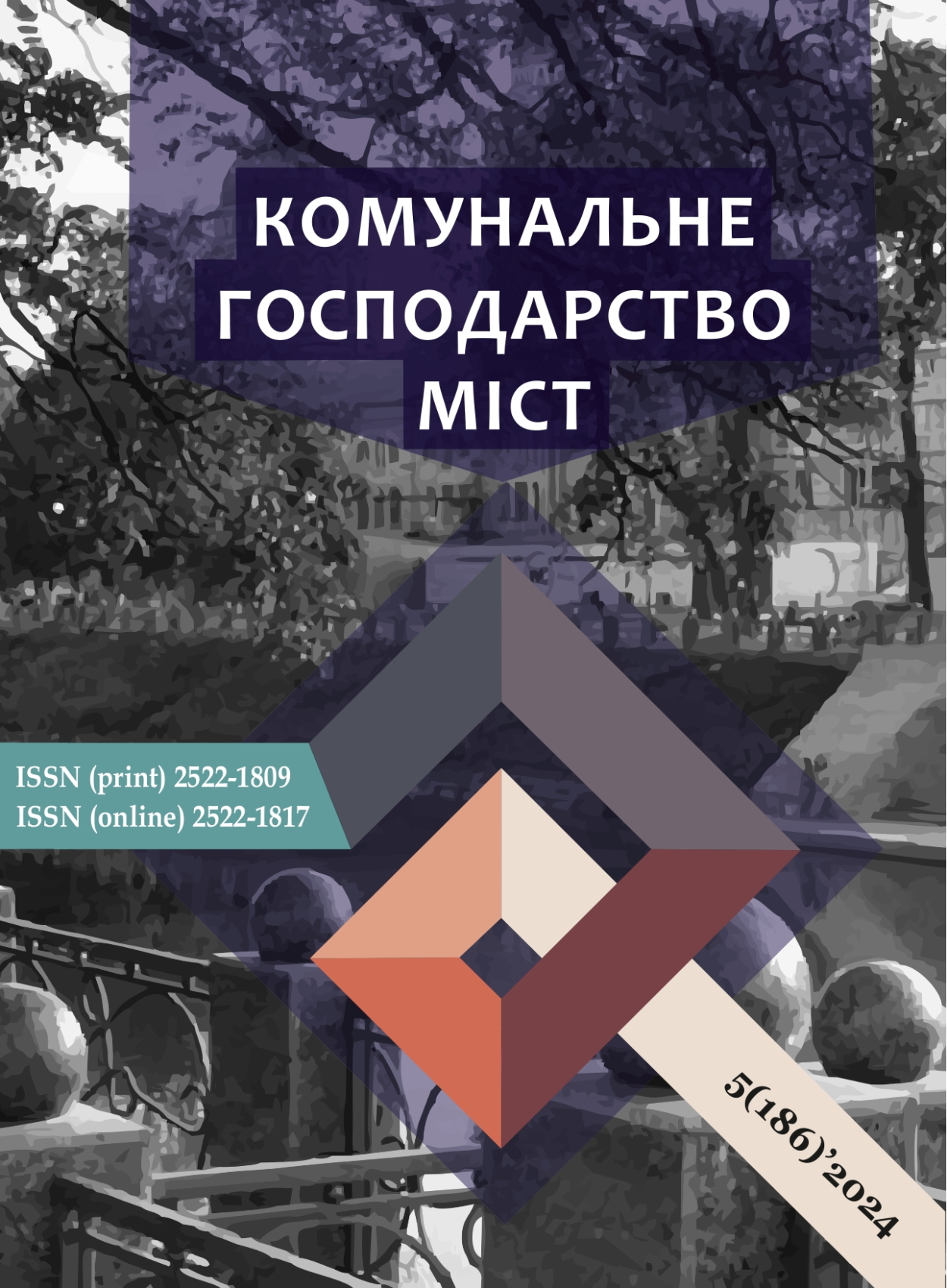FEATURES OF DIGITAL MARKETING IMPLEMENTATION IN THE CONSTRUCTION INDUSTRY
DOI:
https://doi.org/10.33042/2522-1809-2024-5-186-18-24Keywords:
construction, digitalisation, digital marketing, construction company, construction services, construction marketsAbstract
The article is devoted to the topical issue of implementing forms and methods of digital marketing in construction. The purpose of the study is to substantiate the peculiarities of applying forms and methods of digital marketing in construction and to determine the impact of the specifics of construction enterprises on the feasibility of their application. While conducting the study, the authors used such scientific research methods as generalisation, comparison, analysis, and synthesis. We analysed the features of construction production and construction products that influence the formation of a digital marketing complex at construction enterprises and organisations, among which are the length of the construction production cycle, high capital intensity and cost of construction products, a significant level of concentration in the markets of construction products and services, long service life, and territorial definition of construction objects.
The article outlines the main tasks solved by the introduction of a digital marketing complex at construction enterprises: conducting prompt and efficient marketing research, monitoring construction markets online, identifying effective advertising measures, forming a positive image of a construction enterprise, positioning its brands, and increasing transparency and openness of activities. It substantiates that the feasibility of applying forms and methods of digital marketing in construction depends on the type of construction (new construction, reconstruction, overhaul, and technical re-equipment), the scope of activity of a construction company (industrial construction, civil construction, residential construction), and the specifics of construction production. The authors identify the major marketing solutions and methods that allow their implementation based on the specific features of the construction company’s activities, the technological features of construction, and the current situation in the construction markets.
References
Hronska M. V. (2014). Features of the marketing work in the building enterprise. Ekonomika ta derzhava, vol. 9, pp. 28-30.
Oklander T. O., Rakytska S. O., Kozytska K. V. (2018). Adaptation of content of marketing activity of a construction enterprise in the conditions of risks growth. Naukovyi visnyk Khersonskoho derzhavnoho universytetu, vol. 30, pp. 128-132.
Seleznova O. O. (2017). The marketing research of the construction enterprises. Naukovyi visnyk Uzhhorodskoho natsionalnoho universytetu, vol. 13, pp. 109-113.
Ovsiienko N. V. (2021). Marketing specifics of the construction industry. Ekonomika ta suspilstvo, vol. 26. https://doi.org/10.32782/2524-0072/2021-26-26
Oklander M. A. (Ed.). (2017). Digital marketing - a model of marketing of the XXI century: monograph. Odesa, 292 p. (in Ukrainian).
Romanenko L. F. (2019). Digital marketing: the essence and trends. Naukovi zapysky Lvivskoho universytetu biznesu ta prava, vol. 23, pp. 80-84.
Dedilova T. V., Sidelnikova V. K. (2023). Topical areas of marketing in the context of digitalization. Problemy i perspektyvy rozvytku pidpryiemnytstva, vol. 1 (30), pp. 126-134.
Kostianchuk K. V., Zozulov O. V. (2021). Industry 4.0: New Normality technologies and their impact on marketing activities. Ekonomichnyi visnyk NTUU «Kyivskyi politekhnichnyi instytut», vol. 19, pp. 115-120.
Khurdei, V., Pushkar, T., Kuzmenko, H., Bessarab, A. and Tregub, A. (2023). Use of Social Media Platforms as a Key Element of Brand Marketing Strategies. Econ. Aff., 68(03): 1665-1673. https://ndpublisher.in/admin/issues/EAv68n4z5.pdf
Ma X., Gu X. (2024). New marketing strategy model of E-commerce enterprises in the era of digital economy. Heliyon, vol.10 (8). https://doi.org/10.1016/j.heliyon.2024.e29038
Krings W., Palmer R., Inversini A. (2021). Industrial marketing management digital media optimization for B2B marketing. Industrial Marketing Management, 93: 174-186. https://doi.org/10.1016/j.indmarman.2021.01.002
Wu Ch.-W., Botella-Carrubi D., Blanco-González-Tejero Cr. (2024). The empirical study of digital marketing strategy and performance in small and medium-sized enterprises (SMEs). Technological Forecasting and Social Change, 200. https://doi.org/10.1016/j.techfore.2023.123142
Savinova N. B., Krykavskyi V. S. (2019). The marketing 3.0 implementation in business strategy of sustainable development of the construction enterprises. Naukovyi visnyk Uzhhorodskoho natsionalnoho universytetu, vol. 26, pp. 104-109.
Biletskyi I. V. (2022). Marketing strategy of the residential real estate construction entities in the consumer market. Problemy ekonomiky, vol. 4, pp. 133-139.
Downloads
Published
How to Cite
Issue
Section
License
The authors who publish in this collection agree with the following terms:
• The authors reserve the right to authorship of their work and give the magazine the right to first publish this work under the terms of license CC BY-NC-ND 4.0 (with the Designation of Authorship - Non-Commercial - Without Derivatives 4.0 International), which allows others to freely distribute the published work with a mandatory reference to the authors of the original work and the first publication of the work in this magazine.
• Authors have the right to make independent extra-exclusive work agreements in the form in which they were published by this magazine (for example, posting work in an electronic repository of an institution or publishing as part of a monograph), provided that the link to the first publication of the work in this journal is maintained. .
• Journal policy allows and encourages the publication of manuscripts on the Internet (for example, in institutions' repositories or on personal websites), both before the publication of this manuscript and during its editorial work, as it contributes to the emergence of productive scientific discussion and positively affects the efficiency and dynamics of the citation of the published work (see The Effect of Open Access).

